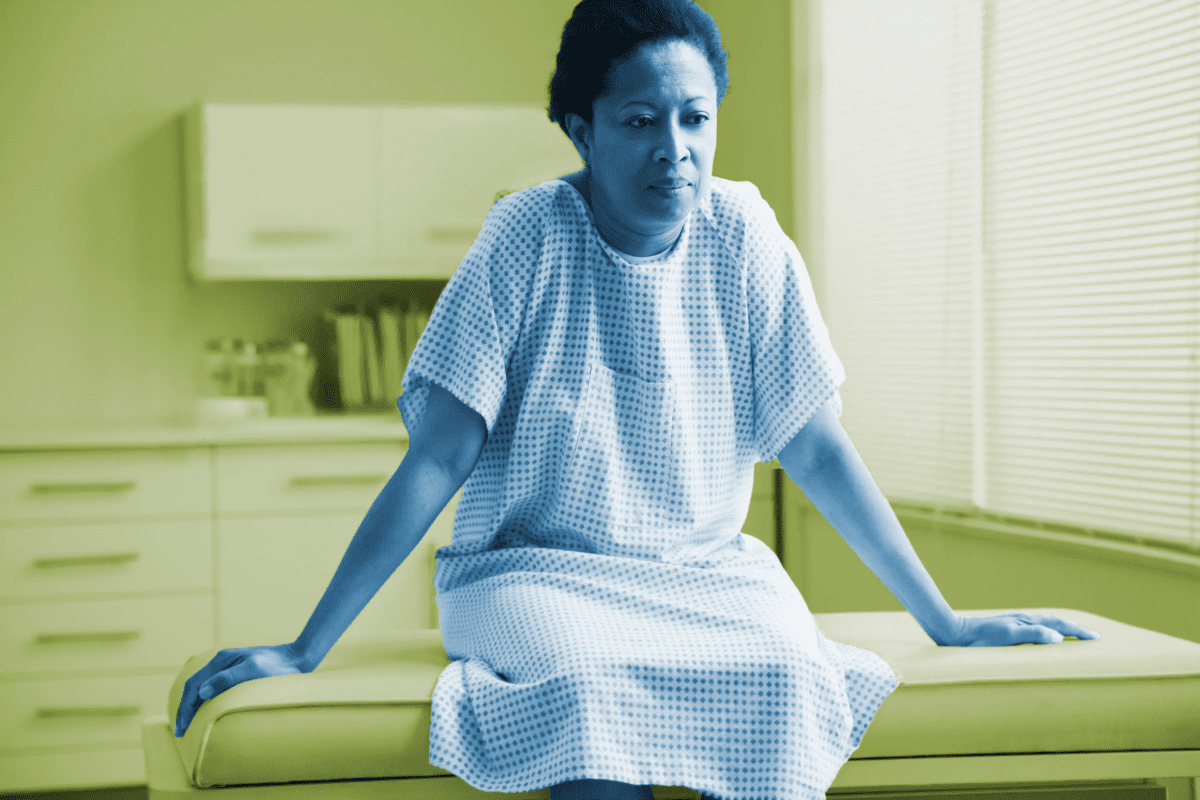Racism is a systemic issue that continues to affect individuals and communities, particularly among people of color. It manifests in various forms, including discrimination, microaggressions, and biases. Research has shown that perceived racism can have adverse effects on mental health and physical well-being. In fact, a recent study revealed that perceived racism may increase the risk of stroke among black women. Before we discuss this study, let’s define what perceived racism is.
What is Perceived Racism
Perceived racism refers to the belief or perception that an individual or group is being subjected to discrimination based on their race. This can be based on personal experiences, observations, and societal factors. It is important to acknowledge that perceived racism does not necessarily have to be overt or intentional. It can also stem from implicit biases and institutionalized systems of oppression. This means that even if an individual does not outwardly exhibit discriminatory behavior, their actions and attitudes may still contribute to the experience of perceived racism. READ ALSO: Reparations summit in Ghana agrees on a global fund to compensate Africans for slave trade

The Link Between Perceived Racism and Stroke Risk Among Black Women
As part of the Black Women’s Health Study, a comprehensive examination was conducted to investigate the correlation between perceived interpersonal racism and the occurrence of stroke among Black women in the United States. Over a span of 22 years (1997-2019), the study closely followed 48,375 Black women who reported instances of racism in their daily lives, particularly in employment, housing, and interactions with law enforcement. The results revealed a significant 38% increase in stroke risk among those who reported such experiences, even after accounting for demographic and vascular risk factors.
This underscores a potential connection between perceived racism and the incidence of stroke. The implications of these findings are profound, emphasizing the urgency for further research into the impact of structural racism on health outcomes. It also highlights the pressing need to address racial disparities in stroke incidence among Black populations by tackling the pervasive burden of racism, particularly in critical areas of life. By comprehensively exploring the broader societal factors contributing to these disparities, we can inform targeted interventions that promote health equity within Black communities. ALSO READ: Why African Americans are flocking to Ghana
Understanding the Connection
The exact mechanism behind how perceived racism increases stroke risk is still not fully understood. However, there are a few theories that can help explain this connection.
Chronic Stress
Experiencing discrimination regularly can lead to chronic stress, which has been linked to various health issues, including heart disease and stroke. The constant activation of the body’s stress response system can have a damaging effect on blood vessels and increase the risk of stroke.
Health Behaviors
Perceived racism can also impact an individual’s health behaviors, such as diet and exercise. Stress eating, a sedentary lifestyle, and unhealthy coping mechanisms are common responses to chronic stress, which can contribute to an increased risk of stroke.
Lack of Healthcare Access
Perceived racism can also lead to barriers to accessing quality healthcare. This can result in undiagnosed and untreated health conditions, which can increase the risk of stroke. ALSO READ: Black New Jersey female officer sues police department for hair discrimination
Other Impacts of Perceived Racism on Black Women
The impact of perceived racism on stroke risk is just one aspect of the larger issue that affects many black women. Other negative impacts include:
- Mental health issues: Perceived racism has been linked to increased rates of depression, anxiety, and other mental health disorders among black women.
- Preterm birth: A study found that pregnant black women who experienced high levels of perceived racism were more likely to give birth prematurely, which can have negative consequences for both the mother and baby.
- Cardiovascular health: Perceived racism has also been linked to higher rates of hypertension and heart disease in black women. This can also contribute to an increased risk of stroke.
- Overall well-being: The constant stress and negative experiences associated with perceived racism can significantly impact the overall well-being and quality of life for black women.

Addressing Perceived Racism as a Public Health Concern
It is clear that perceived racism has severe impacts on the health of black women. Therefore, as a society, we must address this issue as a public health concern. This includes:
- Recognizing and acknowledging the existence of racism: We need to acknowledge the systemic injustices that contribute to perceived racism. Despite numerous campaigns and movements, racism persists in many aspects of society.
- Educating healthcare professionals: Healthcare providers must be educated on the impact of perceived racism and how it can affect their patients’ health. This includes understanding the social determinants of health and how they contribute to health disparities.
- Improving access to quality healthcare: Steps must be taken to ensure all individuals have equal access to quality healthcare regardless of race or socioeconomic status. This includes addressing the implicit biases that exist within the healthcare system.
- Promoting mental health support: Mental health support should be made readily available for black women who may experience high levels of perceived racism. This can include therapy, support groups, and other resources.
- Promoting diversity and inclusion: Efforts should be made to promote diversity and inclusion in all aspects of society, including healthcare settings.
- Providing cultural competency training: Healthcare providers should receive training on how to provide culturally competent care and address implicit bias.
- Investing in research: More research is needed to fully understand the impact of perceived racism on health outcomes, especially among marginalized communities. This can inform targeted interventions and policies to address the issue.
Perceived racism has a significant impact on the risk of stroke among black women. Society needs to address this issue as a public health concern to promote the well-being and health of black women. So, we must work together to create a more equitable and inclusive environment for everyone.
The Role of Social Support
It is worth mentioning that social support can significantly contribute to mitigating the adverse impacts of perceived racism on stroke risk. Robust social connections and relationships can offer emotional and practical assistance, enabling individuals to effectively cope with stressful situations and reduce overall stress levels.
However, black women may face unique challenges in seeking social support. For example, cultural expectations of strength and resilience may make them less likely to seek help or express their emotions. Additionally, systemic racism can limit access to resources and supportive networks.
Bottom Line
Individuals and society must recognize and address this issue to promote well-being for all, regardless of race. By reducing systemic racism and supporting those affected, we can work towards a more equitable and healthier society. Let’s educate ourselves, stand in solidarity, and promote inclusivity and equity in all aspects of life.
Together, we can make a difference and improve the health of black women. Thank you for being an advocate for change. Let’s take action and make a positive change!
#BlackLivesMatter #InclusionMatters #EndRacismNow
References
- Boston University Chobanian & Avedisian School of Medicine
- NBC NEWS
- American Psychological Association
- National Institute for Minority Health and Health Disparities
- JAMA Network



